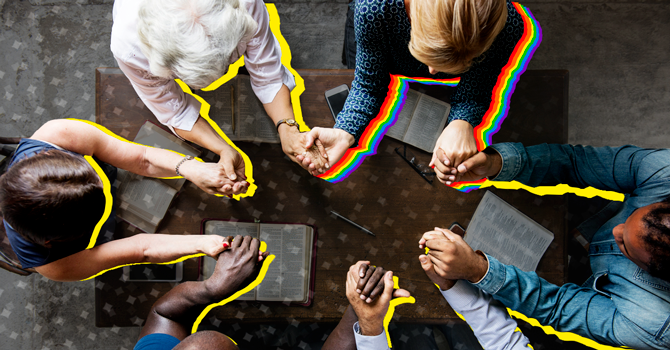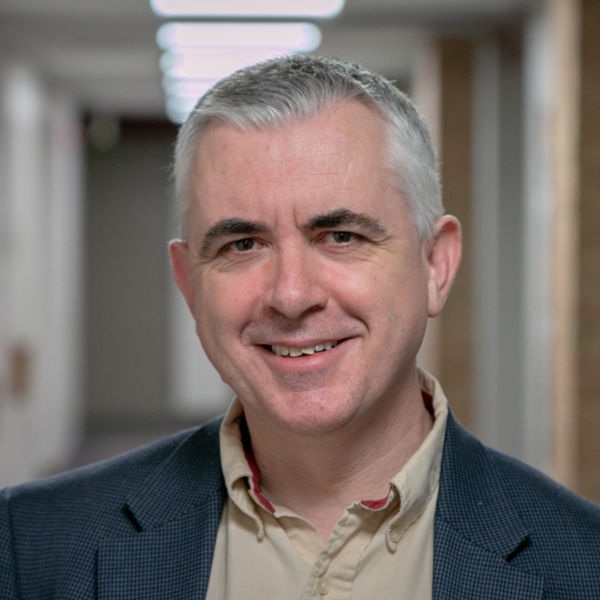It is no secret that many millennials are disconnected from the church, but why is that?
Though there are a number of reasons to list, one is especially relevant these days: younger generations are not jazzed about the dialogue happening (or not happening) within the church related to the LGBTQ community.
For many, the church is far too judgmental in these discussions, and the dialogue is often not a dialogue at all. Instead, it becomes a monologue that is narrow in scope, shallow in depth, and far too exclusive and dismissive for the more open-minded sensibility of today’s 20- and 30-somethings.
There is a strong and growing movement in the U.S. to secure the rights of and affirm the lives and unions of LGBTQ people -- in large measure led by millennials. But much of the church, along with the many people and other institutions it influences, says, “No. That’s sinful.”
It is a difficult conversation to have in the public square, but in the church? The conversation is almost always completely polarizing. And while many of us in the church go back and forth stating our positions and making our theological claims, there are real people whose sacred stories and journeys are being forgotten.
There are souls sitting right behind, just beneath and in the midst of the noise of our chatter who require nourishing, love and affirmation. And some of them are young, too.
My experiences as a college chaplain have sometimes given me a front-row seat to their wrestling. One woman’s story -- which I share with her permission -- illuminates the lessons that have emerged for me in these encounters.
She had been coming to visit my office nearly every week for a few months. And in these 30- or 40-minute exchanges, we would talk about everything: how freshman classes were going, how she was doing emotionally and socially, her spiritual gifts. We talked about her family, upbringing and career aspirations. She was a bright, hardworking student who had been raised in the church and was quite active in our worship community.
But I could feel that maybe there was more happening with her -- what, exactly, I was not sure. After some time, though, she found a way to say what she had been hoping was safe to say all along. One day she decided to read to me from her journal, and through her story, she said something like this: I think I like girls. Actually, I’ve always liked girls. I’m not sure what to do with this. Am I OK?
Such moments are among the most tender in the lives of young adults when they start to put words to their own stories, take ownership of their journeys and understand the various parts of who they are. College chaplains are blessed to witness these kinds of moments all the time. And while they often concern less-freighted matters, like picking a major, they are sometimes about the toughest parts of life.
Had my student been heterosexual and wanting to name her desire for marriage or a partner, there might not have been anything particularly momentous about this moment. But she is queer -- a term she now proudly uses to describe herself -- and more specifically, young, black, woman and queer, from a conservative Christian family.
All of those pieces put together presented a challenge for her, and a long list of accompanying questions: What will my family think? Will they accept me? And the most worrisome question of all: Can I have these feelings and still have faith? I answered with a resounding YES. Of course, she could have faith. Being queer did not require that she give up her God or disengage from her faith community or the faith tradition that had been so foundational to her upbringing. Or did it?
She and I spoke at length about her feelings, her sexual identity and ways to reconcile it all with her faith. I tried with everything in me to convince her what I believe -- that God desired a relationship with her, queer her. She was God’s beloved child, and one for whom God had sacrificed everything, so of course, God loved her and longed to talk to her.
But as time has passed, she has found it difficult to embrace that truth along with the truth of who she now understands herself to be. She was raised in a tradition that rejected this not-so-new version of herself, with its feelings of love and attraction for women, and that promised to punish her for it.
Before she even had a chance to breathe some of the fresh air within the world of her new understanding, the tradition cut off her access to faith. She found it hard to pray, hard to believe in a God who apparently did love her and had created her but somehow hated the desires and attraction that felt so natural to her.
This is where I think we fail the most in these so-called dialogues we are having.
Whatever our position, the church is still called to bring people closer to Christ through the sacraments, through the bonds of fellowship, through our preaching and teaching of the gospel. But what if in all of our holding fast to our beliefs, we are actually doing the opposite? What if in all of our fighting, we are actually pushing people away?
In the case of many millennials, we are.
The story of my student, and of many other queer millennials of faith, is an example of what sometimes happens when our theological and doctrinal commitments are not fully reflective of the wideness of God’s love.
Don’t miss this: she, and others like her, has been robbed of her words for prayer and displaced from the Christian community -- simply because of who she is. That’s the sin.
The whole point of God’s redemptive act in Christ was to reconcile people to God. If we as the church are somehow tampering or doing damage, making it difficult for people to experience that redemption, then I think we are wrong. We are totally off-mission and need to confess.
I know there are practicalities to this that are challenging, but this deciding who’s in or out or right or wrong was never our task. Our call was always to be the love of Christ in the world, every day and in every place. Sometimes that will mean not seeking our own way, and it will always mean making room for all to grow and be nurtured together, to build community.
How will we respond to that call? Will we participate in the hard but essential work of reconciliation? Or will it be another one of those things we leave undone?
As for my student? She has moved on to a new chapter in life at a new school. She describes herself as thriving there, having embraced her truth and now courageously living it.
May her courage be ours in truly becoming the church, and showing the radical love of Christ to all.


















